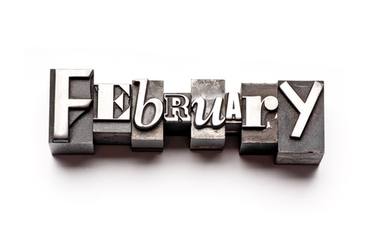1. February is closer to tax time
In the United States (and in Canada, for that matter), April is the time of year where we have to deal with taxes. By starting off the new year in February, you’re through the rush (and imminent hangover) that accompanies the tail end of the year and are fresh and ready to take on the undertaking of getting everything ready to go. Plus, it’s more at front of mind because any holiday credit card bills will have already arrived and any uncertainty left over from December and the start of January will have been dealt with by the time February 1st rolls around.
2. Starting in February opens up July, August, December and January as vacation months
Think about it. Those who take on new activities in January (thanks to those ever-present new year’s resolutions) start off the new year with less actual energy than those who hold off until February. They are still wiped from the events of the previous month. But if you give yourself that extra month (January) to wind up your year, you actually free it up for downtime. That also means you can afford to (both mentally and emotionally) take time off in December and enjoy the holidays without worrying about all the work that January is going to bring. You also give yourself a six-month buffer between thee winter months and summer months (in the northern hemisphere, that is). So as the kids leave school at the end of June, you’re not feeling like you need that mid-year break right away (you know, that break you don’t really get). Instead, you can ease into summer and take your mid-year break in the heart of the hottest months of the year.
3. Starting in February allows for gearing up for September
Since starting the new year in February shifts your start date by an entire month, it makes the start of the school year (September) that much closer to the midway point. Rather than have it start of the final third of the year, it is positioned sooner and allows you to have that break in the middle of the year to reconnect and refocus just as September begins. This is great for parents who often look at September as another start to the year (renowned author of The Happiness Project Gretchen Rubin views September as the start of her year, for example), and if you don’t have children yet but are looking to do so down the road then you’re putting yourself in a great place to deal with thee month by making the halfway mark of your year now.
4. February is a shorter month
When we make any sort of resolution or start a new habit, we want to stick with it for as long as possible in order to give ourselves a greater chance of success. Often we will use the start of a month to start those efforts, and the beginning of the year is no different — except when you make February the beginning of the year. Since February is the shortest month, you’ll have less days in succession to concern yourself with. So that means you’ll be able to see the end of the cycle that much sooner come into play — and it may very well mean that you can continue to keep the momentum going into March and beyond. The bottom line is that you can really start the new year you want anytime you want. The calendar is just more of a road-map than a rule. And the thing about a road-map is that it gives you many ways to get to where you want to go. I choose to take one of the roads with less traffic. Which road do you take…and why? Let me know in the comments below. Photo: “February” courtesy of Shutterstock.
